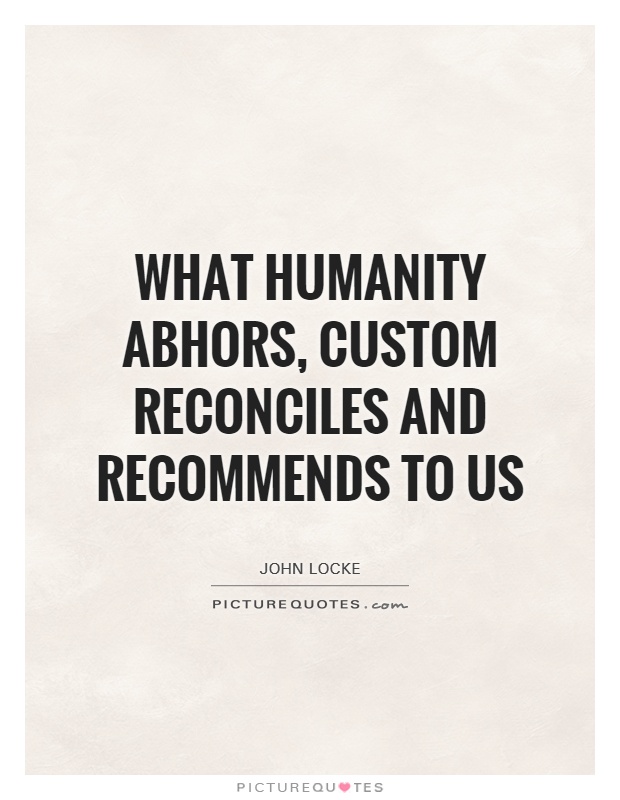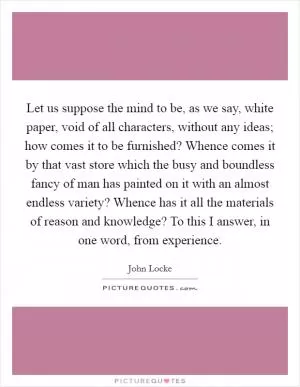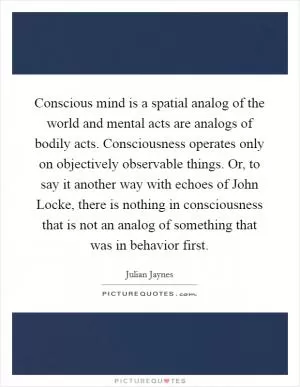What humanity abhors, custom reconciles and recommends to us

What humanity abhors, custom reconciles and recommends to us
John Locke, a prominent philosopher of the Enlightenment era, believed in the power of reason and the importance of individual liberty. In his works, Locke often discussed the concept of custom and its influence on human behavior and societal norms. One of his famous quotes, "What humanity abhors, custom reconciles and recommends to us," sheds light on the complex relationship between human nature and societal conventions.Locke's statement suggests that there are certain behaviors or practices that may be considered abhorrent or unacceptable by humanity at large, but over time, through the influence of custom and tradition, these same actions become normalized and even recommended. This idea can be seen in various aspects of human society, from cultural practices to moral standards.
One example of this phenomenon can be found in the history of slavery. In Locke's time, slavery was a common practice in many parts of the world, and while there were individuals who abhorred the institution, it was widely accepted as a social and economic norm. Over time, through the influence of custom and tradition, slavery became deeply ingrained in society, with many people viewing it as a necessary evil or even a moral good.
Locke's observation raises important questions about the nature of morality and the role of custom in shaping human behavior. It challenges us to consider the ways in which societal norms and conventions can influence our perceptions of right and wrong, and how these influences can sometimes lead us to accept practices that we would otherwise find abhorrent.
At the same time, Locke's statement also highlights the power of individual reason and conscience in challenging and changing established customs. While custom may reconcile us to certain behaviors, it is ultimately up to each individual to question and evaluate the moral implications of these practices. Locke's philosophy emphasizes the importance of critical thinking and moral autonomy in navigating the complexities of human society.












 Friendship Quotes
Friendship Quotes Love Quotes
Love Quotes Life Quotes
Life Quotes Funny Quotes
Funny Quotes Motivational Quotes
Motivational Quotes Inspirational Quotes
Inspirational Quotes